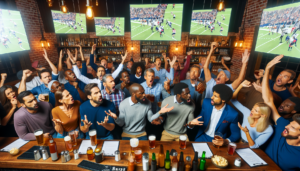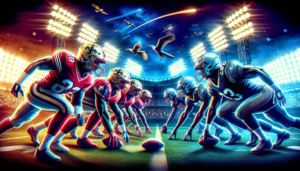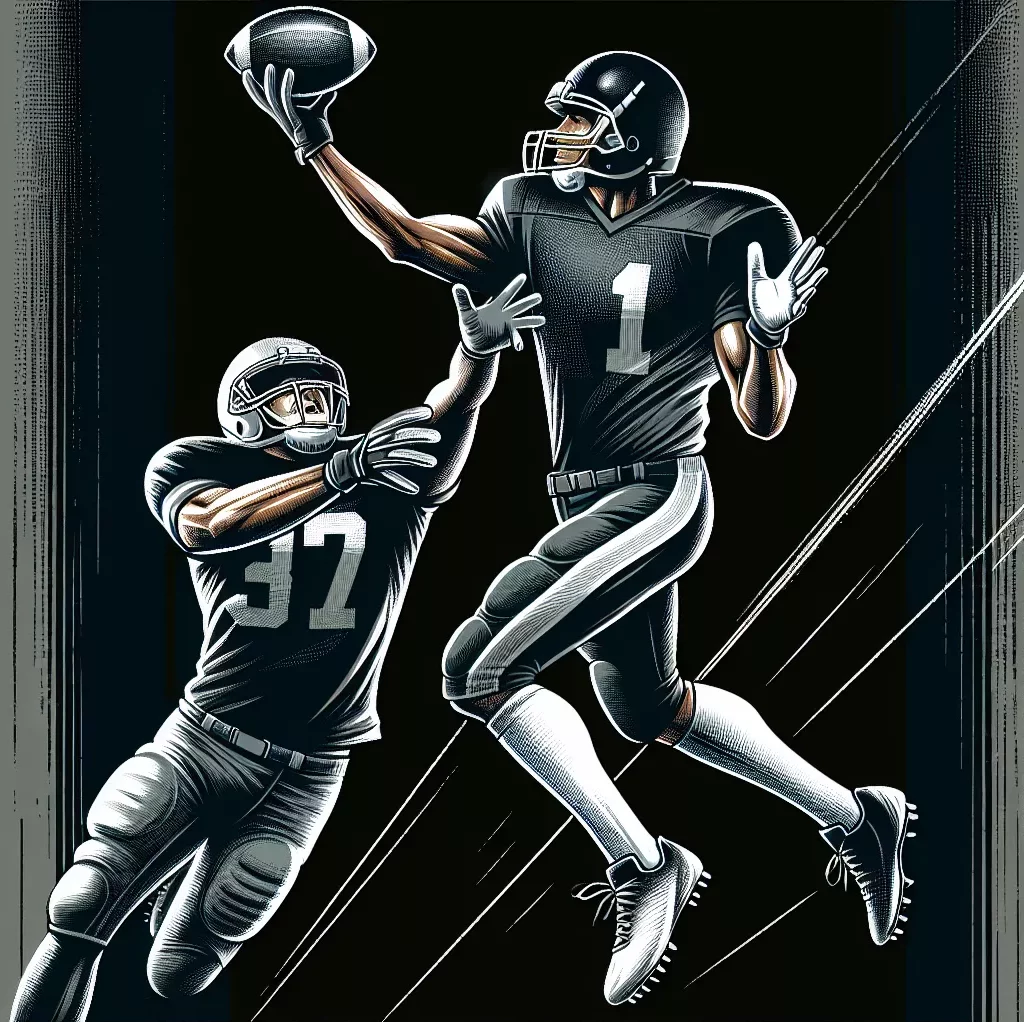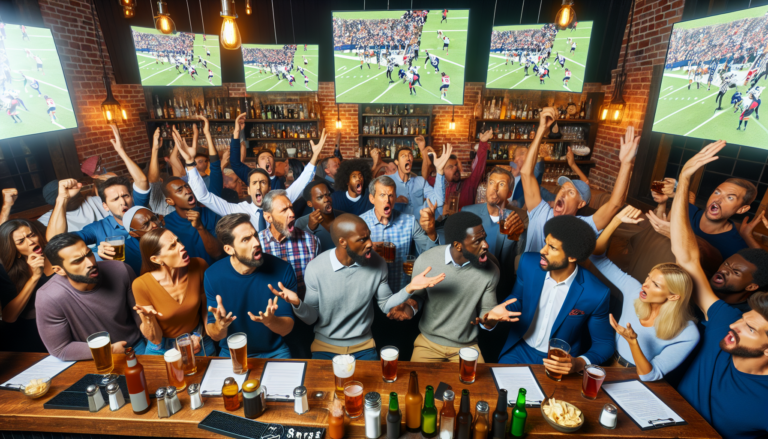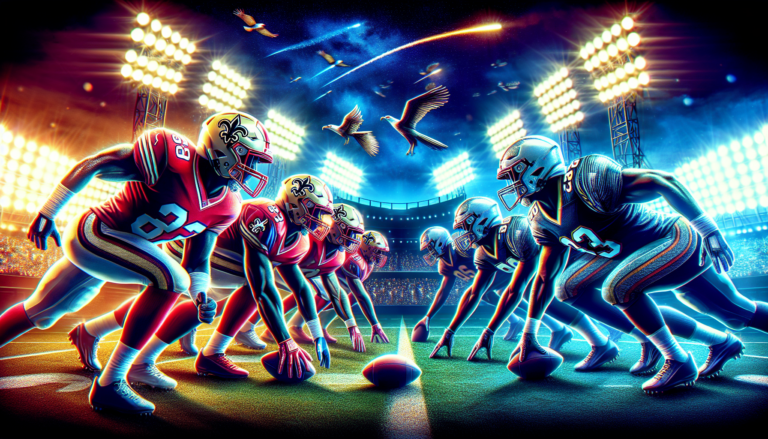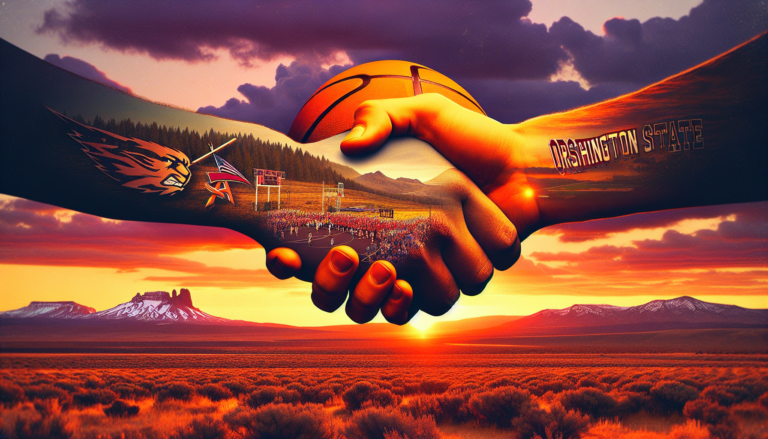Are you eager to stay up-to-date with the latest happenings in the sports industry? Look no further! This article will provide you with all the juicy details and exciting news that you need to know. From thrilling game highlights and player transfers to upcoming tournaments and sports trends, we’ve got you covered. So grab your favorite snack, sit back, and get ready to dive into the exciting world of sports!
Major sports events postponed due to COVID-19
The outbreak of the COVID-19 pandemic had a major impact on the sports industry, leading to the postponement of several major sports events. Tournaments such as the Olympics, UEFA Euro, Wimbledon, and the NBA Finals were all delayed to ensure the safety and well-being of athletes, staff, and spectators. This unprecedented situation forced sports organizations to rethink their schedules and adapt to the ever-changing circumstances. While disappointing for fans and athletes alike, the postponements were necessary to prioritize public health and prevent the spread of the virus.
New rules and regulations in various sports
In response to the pandemic, various sports leagues and organizations implemented new rules and regulations to ensure the safety of participants while allowing them to continue their careers. For example, in football, matches were played without spectators, and strict testing protocols were put in place to minimize the risk of infection. Similarly, in basketball, the NBA bubble concept was introduced, which involved isolating teams and staff in a secure location to prevent the spread of the virus. These adaptations showcased the resilience and adaptability of the sports industry, as it found innovative ways to continue competitions while prioritizing the health and safety of everyone involved.
Record-breaking performances in recent tournaments
Despite the challenges posed by the COVID-19 pandemic, recent tournaments have witnessed remarkable performances by athletes across various sports. In tennis, the US Open saw Naomi Osaka and Dominic Thiem claim their respective titles with outstanding displays of skill and determination. The NBA Finals saw LeBron James lead the Los Angeles Lakers to victory, further solidifying his status as one of basketball’s all-time greats. Such performances not only captivated fans worldwide but also provided a much-needed source of inspiration and entertainment during these challenging times. These record-breaking achievements serve as a testament to the resilience and dedication of athletes despite the adversity they faced.
Increasing use of virtual reality in training
The sports industry has seen a significant increase in the use of virtual reality (VR) technology in training. Professional athletes and teams are now leveraging VR to simulate game scenarios, enhance decision-making skills, and analyze opponents’ strategies. VR allows athletes to train in a controlled environment and experience realistic game situations without risking injuries. This technology has revolutionized the way athletes prepare for competitions, providing them with a valuable tool to improve their performance and gain a competitive edge.
Data analytics as a game-changer in team management
Data analytics has emerged as a game-changer in team management, providing valuable insights into player performance, tactics, and game strategies. Sports organizations now have access to vast amounts of data, including player statistics, biomechanics, and other performance metrics. By analyzing this data, coaches and managers can make informed decisions, develop effective game plans, and identify areas for improvement. Data analytics has revolutionized player recruitment, scouting, and training methods, enabling teams to optimize their resources and maximize their chances of success.
Emerging role of artificial intelligence in sports
Artificial intelligence (AI) is rapidly making its mark in the sports industry, transforming many aspects of the game. AI-powered systems can analyze vast amounts of data, detect patterns, and provide real-time insights to coaches and players. From enhancing player performance through personalized training programs to improving injury prevention and recovery, AI is revolutionizing the way sports teams operate. Moreover, AI has also found application in sports broadcasting, with virtual reality and augmented reality technologies providing immersive and interactive viewing experiences for fans.
Impact of COVID-19 on sports sponsorship deals
The COVID-19 pandemic had a significant impact on sports sponsorship deals, with many brands reassessing their marketing strategies in light of the financial uncertainties caused by the crisis. With sporting events either postponed or played behind closed doors, sponsors were less inclined to invest heavily in traditional advertising. However, this challenging situation also presented opportunities for brands to adapt and explore innovative sponsorship activations, such as virtual advertising and digital collaborations with athletes. As the sports industry continues to recover, sponsorship deals are likely to evolve, with increased focus on digital marketing strategies and partnerships that align with the values and interests of fans.
Shift towards digital marketing strategies
The pandemic accelerated the shift towards digital marketing strategies in the sports industry. With restrictions on physical events, sports organizations turned to digital platforms and social media to engage with fans and create meaningful experiences. Live streaming of matches, virtual fan events, and interactive social media campaigns became the norm, allowing fans to connect with their favorite teams and athletes from the comfort of their homes. This shift towards digital marketing has not only provided new avenues for fan engagement but has also opened up opportunities for brands to reach audiences on a global scale.
The rise of esports industry
The esports industry saw a significant rise in popularity during the pandemic, as traditional sports events were postponed or disrupted. With millions of people staying at home, esports offered a unique form of entertainment and competition that could be enjoyed remotely. Major esports tournaments attracted large audiences and generated significant revenue through sponsorships and media rights. As the world gradually returns to normal, esports is expected to continue growing, with traditional sports teams and athletes increasingly venturing into the esports realm to engage with a new generation of fans.
High-profile transfers in football and basketball
Football and basketball witnessed several high-profile transfers as top clubs and franchises sought to strengthen their squads in pursuit of success. Notable transfers included Lionel Messi’s move from Barcelona to Paris Saint-Germain in football and James Harden’s trade from the Houston Rockets to the Brooklyn Nets in basketball. These transfers not only generated excitement among fans but also demonstrated the immense financial power and competitive nature of these sports.
Debate over agents’ fees and contract negotiations
The sports industry has seen ongoing debates regarding agents’ fees and contract negotiations. Critics argue that the exorbitant fees paid to agents distort the market and inflate player salaries, ultimately impacting the financial stability of clubs. Efforts have been made by sports organizations to regulate agents’ fees and introduce transparency in contract negotiations to ensure fairness and sustainability. Achieving a balance between adequately compensating players and controlling the influence of agents remains a complex and ongoing challenge.
Salary cap challenges in professional leagues
Professional leagues face challenges in managing salary caps to maintain competitiveness and financial sustainability. Salary caps restrict the amount of money teams can spend on player salaries, preventing wealthier franchises from dominating the league and creating a more level playing field. However, ensuring a fair and effective salary cap system requires careful consideration and periodic adjustments to adapt to the evolving financial landscape of the sports industry. Striking the right balance between financial stability and maintaining a competitive environment remains a constant challenge for professional leagues.
Growing popularity of online sports betting
Online sports betting has experienced a surge in popularity, fueled by the increasing accessibility of smartphones and the widespread availability of betting platforms. Technological advancements have created new opportunities for fans to engage with sports through betting, offering an immersive and interactive experience. However, the rise of online sports betting also raises concerns about gambling addiction and the potential for match-fixing. Sports organizations and regulatory bodies are working towards implementing responsible gambling measures to protect the integrity of the game and ensure the well-being of individuals involved in sports betting.
Legislation changes in sports gambling
With the growing popularity of sports gambling, legislation changes have taken place in many jurisdictions. The legalization and regulation of sports betting have led to a more transparent and controlled environment, minimizing the risks associated with illegal gambling. This shift has potential benefits, such as generating tax revenue for governments and creating job opportunities within the gambling industry. However, regulations must strike a balance between facilitating a safe and enjoyable gambling experience while safeguarding individuals from the potential harms of excessive gambling.
Controversies over match-fixing and illegal betting
The issue of match-fixing and illegal betting continues to plague the sports industry. Match-fixing involves manipulating the outcome of sporting events to fraudulently obtain financial gains through illegal betting. This undermines the integrity of sports and erodes public trust. Sports organizations and governments are actively working together to combat match-fixing through strict regulations, education programs, and collaboration with law enforcement agencies. The battle against match-fixing remains ongoing, requiring continuous efforts to maintain the fairness and integrity of sports.
Advancements in sports science research
Advancements in sports science research have paved the way for athletes to enhance their performance and physical capabilities. From understanding the biomechanics of movements to optimizing training programs, sports science plays a crucial role in maximizing athletic potential. Cutting-edge technologies, such as motion capture systems, physiological monitoring devices, and genetic testing, provide athletes with valuable insights into their bodies and help identify areas for improvement. The ongoing development of sports science continues to contribute to breakthroughs in performance and injury prevention.
New training methodologies for better performance
Sports science research has led to the development of new training methodologies that have revolutionized the way athletes prepare for competitions. Understanding the importance of individualized training programs, coaches and trainers now tailor workouts to suit the specific needs and goals of each athlete. This personalized approach takes into account factors such as physical attributes, injury history, and performance data to optimize training efficiency. Techniques like high-intensity interval training (HIIT) and periodization have become essential components of athletes’ training regimens, enabling them to achieve peak performance while minimizing the risk of injuries.
The role of nutrition in athletic success
Nutrition plays a vital role in athletic success, as the fuel athletes consume directly impacts their performance and overall well-being. Proper nutrition provides athletes with the necessary energy, nutrients, and hydration to train effectively and recover optimally. Sports nutritionists work closely with athletes to develop individualized meal plans that take into account their specific dietary needs and training goals. From optimizing macronutrient ratios to timing nutrient intake, nutritionists ensure that athletes have the best possible nutritional support to enhance their performance and achieve their athletic goals.
Breakthrough achievements by female athletes
Female athletes have made breakthrough achievements in various sports, challenging gender stereotypes and inspiring the next generation of athletes. From Serena Williams in tennis to Simone Biles in gymnastics, these trailblazing women have shattered records, overcome adversity, and become icons in their respective sports. Their success not only highlights the incredible talent and hard work of female athletes but also serves as a reminder of the importance of equal opportunities and representation in sports.
Gender disparities in professional sports
Despite the achievements of female athletes, gender disparities persist in professional sports. Women’s sports often receive less media coverage, lower wages, and limited sponsorship opportunities compared to their male counterparts. This lack of support and investment hinders the growth and development of women’s sports, limiting the potential for female athletes to reach their full potential. Initiatives and campaigns promoting gender equality and inclusivity are crucial in addressing these disparities and providing equal opportunities for both male and female athletes.
Increasing participation and support for women’s sports
There has been growing recognition and support for women’s sports, both at the grassroots level and in professional leagues. Initiatives such as increased media coverage, equal prize money, and investment in women’s sports programs have helped to level the playing field and create more opportunities for female athletes. The success of events like the FIFA Women’s World Cup and the WNBA has demonstrated the popularity and marketability of women’s sports, paving the way for future growth and greater gender equality in the sporting world.
Athletes taking a stand against racism and discrimination
Athletes have increasingly used their platforms to take a stand against racism and discrimination, using their influence to drive social change. From kneeling during the national anthem to speaking out against injustice, athletes have amplified important social issues, sparking conversations and inspiring action. Their advocacy has shed light on the need for inclusivity, equality, and justice in sports and society as a whole, highlighting the power of sports as a platform for social justice.
Efforts towards inclusivity and diversity in sports
Efforts towards inclusivity and diversity in sports have gained momentum, with organizations working to create more inclusive environments and ensure equal opportunities for marginalized communities. Initiatives such as diversity training programs, mentorship opportunities, and anti-discrimination policies aim to foster a more welcoming and inclusive sports culture. By embracing diversity and providing equal opportunities, the sports industry can tap into a broader talent pool and celebrate the richness of different backgrounds, cultures, and identities.
Sports as a platform for social change
Sports have historically served as a platform for social change, bringing people together and advocating for important causes. Athletes and sports organizations have leveraged their influence to champion various social issues, from advocating for gender equality and racial justice to promoting environmental sustainability. By utilizing their platforms effectively, athletes and sports organizations have the potential to inspire change, shape public opinion, and ignite conversations that go beyond the boundaries of the field.
Green initiatives by sports organizations
Sports organizations have embraced green initiatives to reduce their environmental footprint and promote sustainability. From implementing renewable energy sources in stadiums to adopting eco-friendly practices in operations, these initiatives help mitigate the environmental impact of sports events. Furthermore, sports organizations leverage their influence to raise awareness about environmental issues and inspire fans to adopt sustainable practices in their own lives. By prioritizing sustainability, sports organizations are playing their part in addressing the challenges posed by climate change.
Impact of climate change on outdoor sports
Climate change poses significant challenges to outdoor sports, as it alters weather patterns and affects the availability of suitable playing conditions. Rising temperatures, extreme weather events, and changing seasons can all impact the scheduling and feasibility of outdoor sports activities. Sports organizations and governing bodies are developing strategies to adapt to these changes, exploring technologies and innovative solutions to ensure the long-term viability of outdoor sports. Additionally, the sports industry has the potential to raise awareness about the impacts of climate change and encourage individuals to take action in their communities.
Promoting eco-friendly practices among athletes
Athletes play a crucial role in promoting eco-friendly practices and raising awareness about sustainability. Through their actions both on and off the field, athletes can inspire fans to adopt environmentally conscious behaviors. Sports organizations provide education and resources to athletes, encouraging them to embrace eco-friendly initiatives such as recycling, reducing plastic consumption, and supporting sustainable brands. By leading by example, athletes have the power to create a positive impact on the environment and inspire others to make sustainable choices.
Rise of extreme sports and unconventional sporting events
The rise of extreme sports and unconventional sporting events has captured the imagination of fans worldwide. From snowboarding and skateboarding to parkour and rock climbing, these adrenaline-fueled sports offer a thrilling alternative to traditional sports. The popularity of extreme sports can be attributed to their appeal to younger audiences and their ability to push the boundaries of human performance. As these sports continue to evolve, they present exciting opportunities for the sports industry, attracting new fans and creating unique experiences.
Integration of video games and sports
The integration of video games and sports has created a new era of entertainment and engagement. Esports, or competitive video gaming, has gained significant popularity, attracting a massive global audience. Traditional sports teams and organizations are entering the esports arena, forming partnerships and creating competitive teams to tap into this booming industry. Additionally, video game adaptations of popular sports, such as FIFA and NBA 2K, have become immensely popular, blurring the lines between virtual and physical sports experiences.
Changing fan behavior and engagement strategies
The sports industry is witnessing a shift in fan behavior and engagement strategies. With the rise of digital platforms and social media, fans now have increased access to their favorite teams, athletes, and sports events. This has led to a more interactive and personalized fan experience, with real-time updates, behind-the-scenes content, and interactive fan engagement campaigns. Sports organizations are investing in data analytics and customer relationship management systems to gain insights into fan behavior and preferences, tailoring their engagement strategies to provide unique and immersive experiences.
In conclusion, the sports industry is experiencing several significant developments across various aspects. The COVID-19 pandemic has forced rescheduling and new regulations, while technology continues to shape the way athletes train and perform. The business side of sports is evolving with changes in sponsorship deals and the rise of esports. Player transfers and contracts face ongoing debates, and sports betting is gaining popularity with both legislative changes and increased scrutiny. Sports science research, women’s sports, social justice initiatives, environmental sustainability, emerging trends, and fan behavior changes are all shaping the landscape of the sports industry. As the world progresses, the sports industry will continue to adapt and innovate to meet the needs and demands of fans, athletes, and stakeholders alike.
